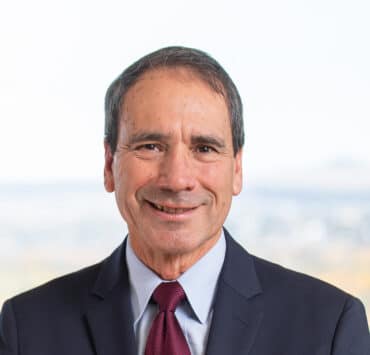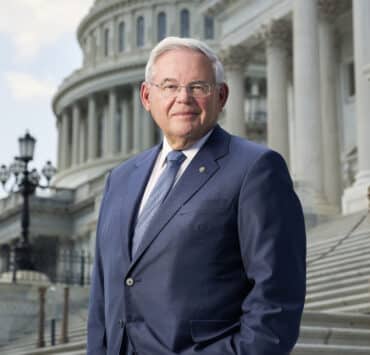Paul Francisco wasn’t prepared for winter in Boston. The seventeen-year-old from Siguatepeque, Honduras, had never been on an airplane and certainly didn’t know what to expect in the big city. He didn’t have a winter coat, and instead wore a simple white T-shirt. His long, thin frame revealed bare ankles between his ill-fitting khakis and his loafers—the only pair of shoes he owned.
In the car, Francisco pressed his face against the glass, enthralled by the lights, the buildings, and the movement. His aunt’s house seemed enormous, and equally exciting. Francisco had never seen so many television sets in one household—she had one in every room.
Francisco was in the United States to visit family and go Christmas shopping—or so he thought. On the eve of his intended departure, Francisco learned the truth. His family was returning to Honduras without him. He would stay, learn English, and get an education.
The next day, Francisco was setting out to explore the city when a family member warned him to stay away from Southie, the densely populated part of the city known for its history of housing segregation. “I had never been told I couldn’t go somewhere based on the color of my skin,” he says. “It was the first time I realized I was different. I was Afro-Latino.”
“My own experience taught me that a sense of belonging is important, and that’s what we’re building at State Street.”
Paul Francisco
The memory stuck with Francisco as he entered high school and began to learn English. “I didn’t fit in anywhere. I was Black, but I didn’t speak English. Nobody knew where to put me,” he recalls. Francisco focused on losing his accent and fitting in—on feeling like he belonged.
And he soon found a place where he belonged. One afternoon, the school’s starting quarterback asked the tall, thin, and strong Francisco to play football the following day. He rushed home, borrowed money from his aunt, and bought everything he thought he needed to play his version of football. Then, he showed up with cleats, shin guards, and a round ball. The rest of the players had helmets and pads. Francisco had confused American football for soccer.
Despite the misunderstanding, Francisco learned the game and thrived as a tight end. He was All Academic, scored the most touchdowns at his position in state history, went to Boston University on an athletic scholarship, and became the first NFL player from Honduras.
As Francisco saw people from different backgrounds, races, and mindsets coming together to form a team, he started to think deeply about inclusion and diversity. When injuries cut his playing days short, he decided to explore those issues more fully. He transitioned to the corporate world, led on-campus recruitment strategies for an insurance provider, and gained expertise as a diversity practitioner.
Today, Francisco is a senior vice president and the chief diversity officer at State Street, a leading global financial services provider. In this role, he develops and implements inclusion, equity, and diversity programs that impact forty thousand employees, their clients, and their communities.
Following the political unrest of 2020, the SVP saw an opportunity to foster a sense of allyship. He helped State Street create an initiative called Ten Actions to Address Racism and Inequality. Those actions include improving employee, board, and industry representation for Black and Latino professionals; conducting anti-racism training; increasing civic engagement; and increasing spend with minority suppliers.
In addition to managing State Street’s progress on its diversity goals, Francisco develops and trains inclusive leaders. “My own experience taught me that a sense of belonging is important, and that’s what we’re building at State Street,” he says.
The SVP’s programs are designed to ensure that everyone feels at home, has a voice, and has access to the same professional opportunities. Internally, twenty-four employee resource groups help fulfill this mission. Externally, Francisco and State Street work with the Association of Latino Professionals for America, National Association of Black Accountants, National Association of Asian American Professionals, and the National Black MBA Association to mine best practices and explore partnerships.
Francisco knows how valuable it is to work with such nonprofits, as not-for-profit organizations played a key role in his successful transition from Honduras to the United States. “Community organizations changed my life and are still at the forefront of changing communities of color, so serving in them is part of my calling,” he says. After all, there might be another talented “Paul Francisco” out there who dreams of a career in professional sports or business but lacks funding, education, or mentorship.
Today, Francisco serves on a variety of school, institutional, and nonprofit boards, including the boards of Cathedral High School, the Base Inc., the Museum of Fine Arts Boston, Uncornered, and Morgan Memorial Goodwill. He also cofounded the New Commonwealth Racial Equity and Social Justice Fund and coleads a networking organization known as the Dinner Group Inc. This last group convenes men of color with the purpose of creating professional networking opportunities, mentorship, and community engagement.
The former NFL star is still guided by his time on the gridiron. When a football team wins the Super Bowl, active players, injured players, trainers, MVPs, GMs, and front-office personnel all receive identical championship rings. Each individual person matters. Everyone has something to contribute. A team wins together. That’s the mindset Paul Francisco is bringing to diversity, equity, and inclusion at State Street.


